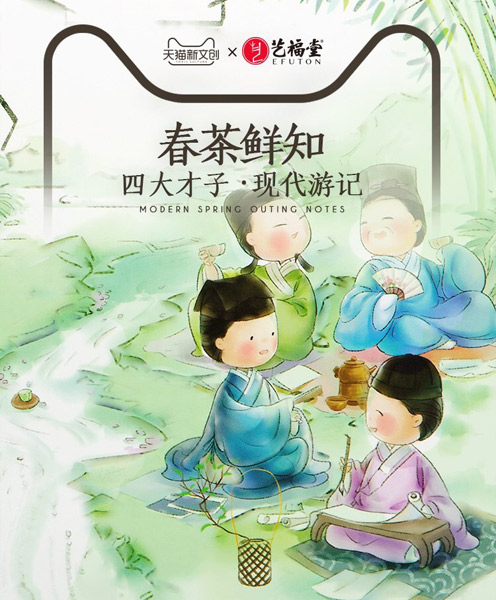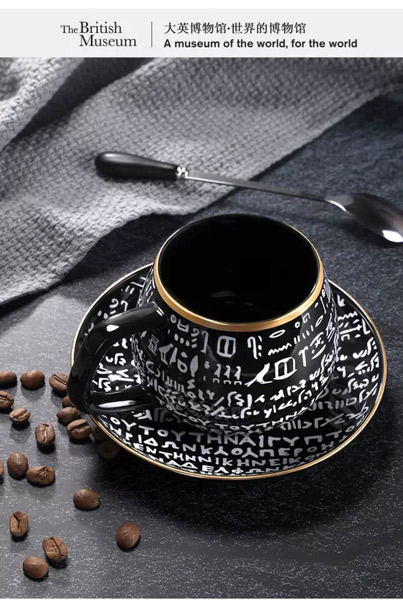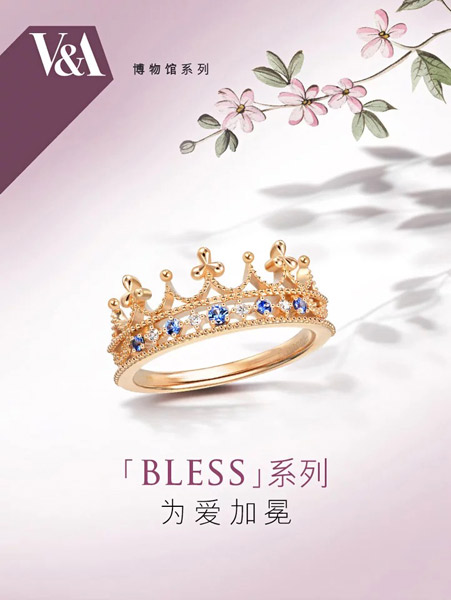
Starry lollipops, a hit snack co-designed by Crafted, a hand-made sugar brand, and China's Lunar Exploration Project.
Do you remember the innovative and irresistible starry lollipops, a hit snack that swept China’s social media during the past Qixi festival, (aka Chinese Valentine’s Day)?
The credit for this business miracle goes to Tmall. Backed by Chinese ecommerce behemoth Alibaba, Tmall boasts 500 million monthly active users as of Feb 2018, making it the world’s second-largest e-commerce website after Taobao, which it spun off from in 2008.
Thanks to the facilitation of the Tmall Neo-Culture Creativity Plan 1.0 launched in January, Crafted, a hand-made sugar brand, has partnered with China’s Lunar Exploration Project in a bid to woo more customers.
The day the starry lollipop was launched on Tmall, more than 100,000 boxes were sold.
Another crossover money spinner generated by this plan is the spring tea branded “The Four Scholars”.

The spring tea themed "Modern Spring Outing of the Four Scholars", a co-creation between the Suzhou Museum and tea brands, is available on Tmall.
Inspired by the Ming Dynasty (1368-1644) household legends of the four scholars headed by Tang Yin, Tmall teamed up with the Suzhou Museum in East China’s Jiangsu province and eight tea brands to orchestrate a marketing campaign, “Modern Spring Outing of the Four Scholars”.
The campaign bore sweet fruit. Statistics show the sales of major spring teas increased by about 60 percent year-on-year on Tmall, and the eight participating tea brands also saw a nearly 100 percent rise in the number of their new patrons.
“2019 has witnessed the huge momentum of the collaborations between museums and private companies,” said Jia Luo, general manager of Tmall’s operation center.
Recently, the e-commerce giant added more fuel to this momentum by launching the Tmall Neo-Culture Creativity Plan 2.0 on Aug 15.
According to the plan, in the coming three years, it will facilitate the world’s prestigious museums, such as Russia’s Winter Palace, to join hands with nearly 10,000 brands that are currently available.
They’ll be working together to make crossover products such as clothes, accessories, and kitchenware that feature collection highlights housed in each of the world’s museums.
The drive behind the e-commerce giant’s ambitious move can be largely explained by the boom in China’s online museum-related merchandise market, which has been growing at a jaw-dropping rate.

A coffee cup featuring inscriptions from the Rosetta Stone is available on the Tmall flagship shop by the British Museum.
So far a total of 24 museums, including the Palace Museum and the British Museum, have opened their flagship stores on Tmall and Taobao. The sales of museum goods nearly tripled in the first half of 2019 from the same period last year, according to a report jointly released by Tmall and the Institute of Cultural Economy of Tsinghua University on Aug 15.
The report also revealed that last year, over 1.6 billion people in China patronized museums’ Tmall flagship stores, 50 percent more than those who visited the museums across the country. Plus, among all of museums’ online store patrons, 100 million of them were born in the 1990s.
Above all, the report found that the younger generation has grown tired of those vanilla products, like notebooks and refrigerator magnets, sold on museums’ online flagship stores.

Chinese jewelry brand Chow Sang Sang features one of Queen Victoria's crowns, which is housed in the UK's Victoria and Albert Museum, among its jewelry offerings.
Instead, they are always willing to foot the bill for novel and creative crossover products, the sales of which account for as much as 72 percent of the entire sales of the cultural and creative products in China.
Guided by the Tmall Neo-Culture Creativity Plan 2.0, Tmall looks to build a bridge between consumers, museums, and brands, adding fuel to the development of China’s cultural and creative industry, as well as instilling life into Chinese traditional culture, Luo added.
Neo-Culture Creativity, a concept first put forward by Chinese internet titan Tencent in April 2018, is about mutually promoting the cultural and industrial value of content through a centralized connection of channels to achieve higher efficiency for the creation of digital culture and the development of intellectual property.



